Posted: December 14, 2019
Five easy ways to protect your local waterways!

Generated by members of the Youth Water Leader Program, these five tips are easy ways to protect your local waterways! Originally a series on our social media, we have assembled them here with added information.
Did you know that much of the watershed’s drinking water comes from the Ottawa River? That’s right, the Ottawa River is the source of drinking water for “approximately 900,000 residential, commercial, and industrial customers” in and around the City of Ottawa (source 1), and close to 2 million people throughout our watershed. While we are fortunate to have such large quantities of usable water at our disposal, this precious resource should not be taken for granted.
The Ottawa River is constantly faced with problems, most notably those stemming from pollution. While issues on this scale often seem out of our hands, there are many little things we can do to help. We can all pitch in to ensure that our beloved Ottawa River, as well as our main potable water source, remains safe and healthy. To find out five easy ways you can help, continue reading below!
Source 1: https://ottawa.ca/en/living-ottawa/water/drinking-water
1 – Plant a water-wise garden of native plants at the end of your yard to catch runoff and filter chemicals.
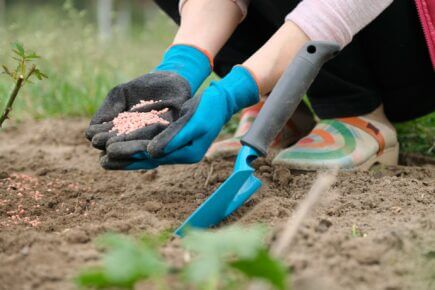
Planting native plants will help catch water that otherwise would go directly to the sewage drain, filtering chemicals and pollutants. If you prefer a lawn, planting a narrow garden between your lawn and the sidewalk or road can catch runoff and filter chemicals that travel easily across short grass into the stormwater drain.
Choose drought-tolerant plants native to Eastern Ontario that survive with little supplemental watering once established, such as Northern Bush-honeysuckle, Dogwood, Purple Coneflower, Daylily, and Garden Peonies. If you need to water, water only once a week in the mornings or evenings to reduce evaporation.
For more information on building a water-efficient garden, check out these tips from the City of Ottawa!
2 – Turn your gutter spout towards your garden not on your driveway or sidewalk
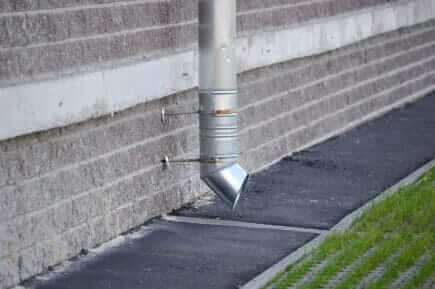
Rainwater coming from the gutter picks up chemicals from your car on the driveway and brings it straight to the river through the storm sewers. It may be a simple solution, but turning your gutter spout to your garden or lawn will help trap the rainwater and filter out any pollutants.
3 – Build or buy a rain barrel
A rain barrel is a tank which collects and stores rainwater from your roof for later use. They help reduce water pollution by reducing the amount of stormwater runoff which often can accumulate chemicals and contaminants while flowing through the industrial and agricultural landscape to our streams and rivers.
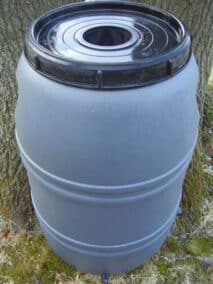
Runoff collected directly into rain barrels is clean and can then be used for tasks such as washing vehicles, watering grass or plants, etc. This further makes a rain barrel a great way to reduce the use of potable water from our taps.
4 – Let your grass grow
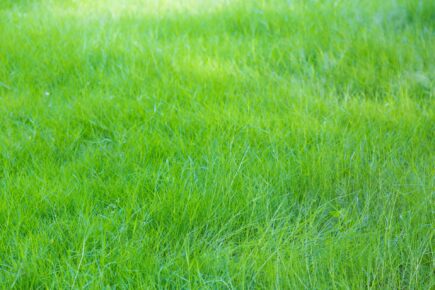
Long dense grass allows approximately 15 times less runoff than thin, unhealthy lawns. This is because when your grass is mowed short, it has to spend the majority of its food reserves to produce new shoots. This means that it is not able to grow as extensive roots. When grass is allowed to grow longer, it is able to build up its food reserves and grow better roots. Thus, dense healthy lawn grasses are more capable of slowing the flow of stormwater, allowing it to be absorbed into the ground, filtered, and returned to aquifers instead of flowing into storm sewers. If you are not a fan of wild uncut grass, consider raising the blade on your lawn mower so that your grass is not cut as short.
5 – Reduce water usage
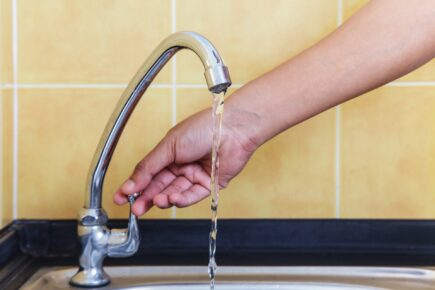
There are many simple ways to cut down on water usage. Limiting the amount of water you use in you daily life can not only save you money, but also plays an important role in protecting the Ottawa River Watershed. By using less water you allow less water to be diverted from local water bodies and reduce greenhouse emissions associated with water treatment and distribution. Thus, conserving water helps keep the Ottawa watershed healthy. Some examples include: taking shorter showers, only running the dishwasher and washing machine when you have a full load, turning off the tap while you brush your teeth, installing aerated taps, etc. The ways you can reduce your use of water are limitless.
For more ideas, check out https://wateruseitwisely.com/100-ways-to-conserve/
< Previous post Next post >